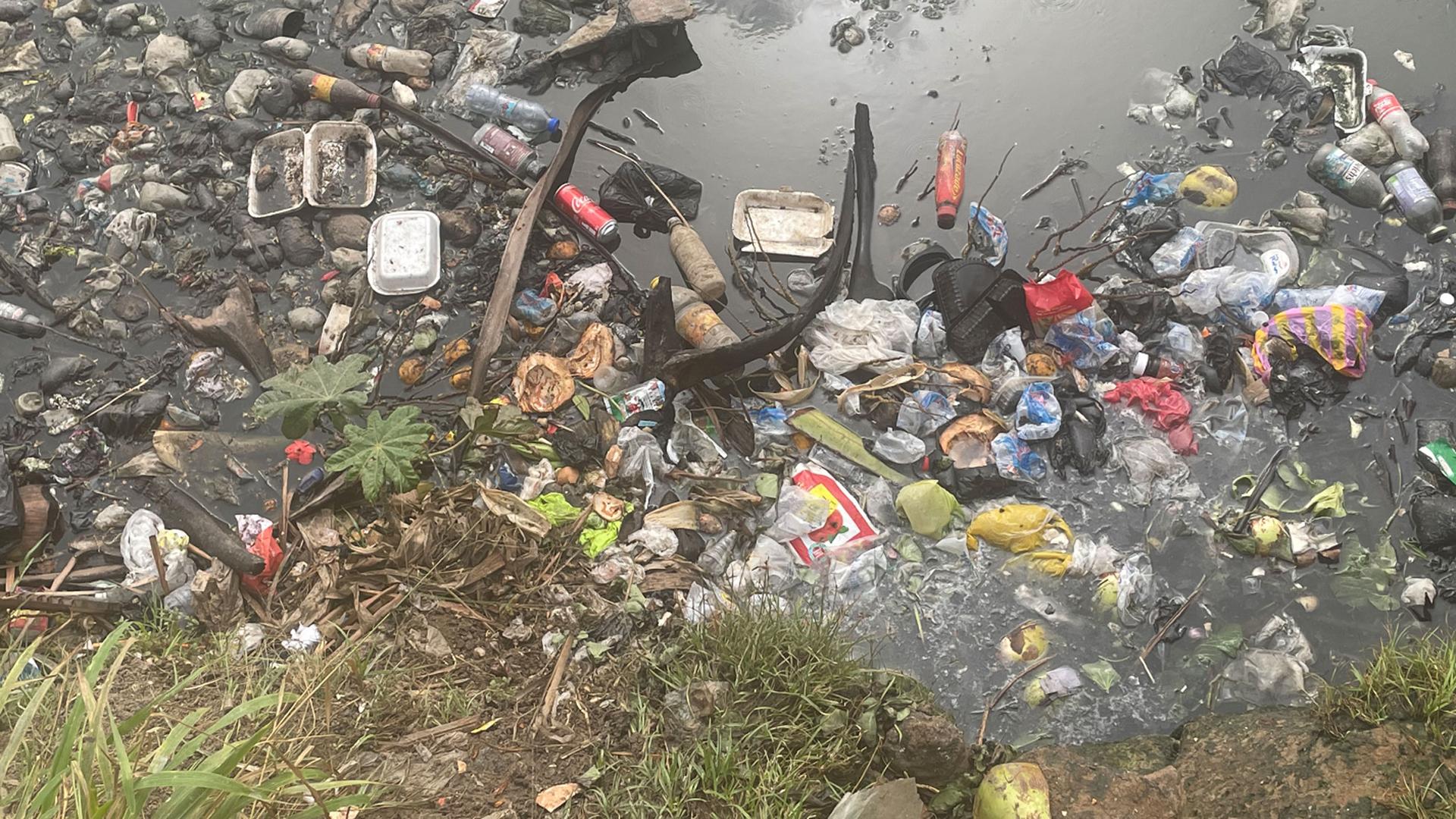Ghana’s fishermen are drowning in plastic. The govt is trying to tackle pollution before it’s too late.
On a hot, humid Saturday at Winneba beach, Ghanaians flock to one of the largest fish markets in Ghana’s central region. Here, fisherman Kwame Nkum is repairing a fishing net that he says was damaged after getting entangled in plastic waste.
The massive heaps of plastic trash strewn along the beach are “very disturbing,” he said, with empty bottles, grocery bags, discarded face masks and gloves everywhere.
“For some years now, whenever we cast our nets, all we catch are plastics.”
“For some years now, whenever we cast our nets, all we catch are plastics,” Nkum said. “Sometimes, after a whole haul, you can only get a dozen fishes and the rest is just waste.”
Ghana launched a national plastic action plan a few years ago to mitigate the problem — including a push for more recycling and funding to support it — but vulnerable communities continue to bear the brunt of the damage caused by plastic pollution.
Related: Only 1 in 7 households in Ghana has a toilet. Communities are fighting to ensure sanitation for all.
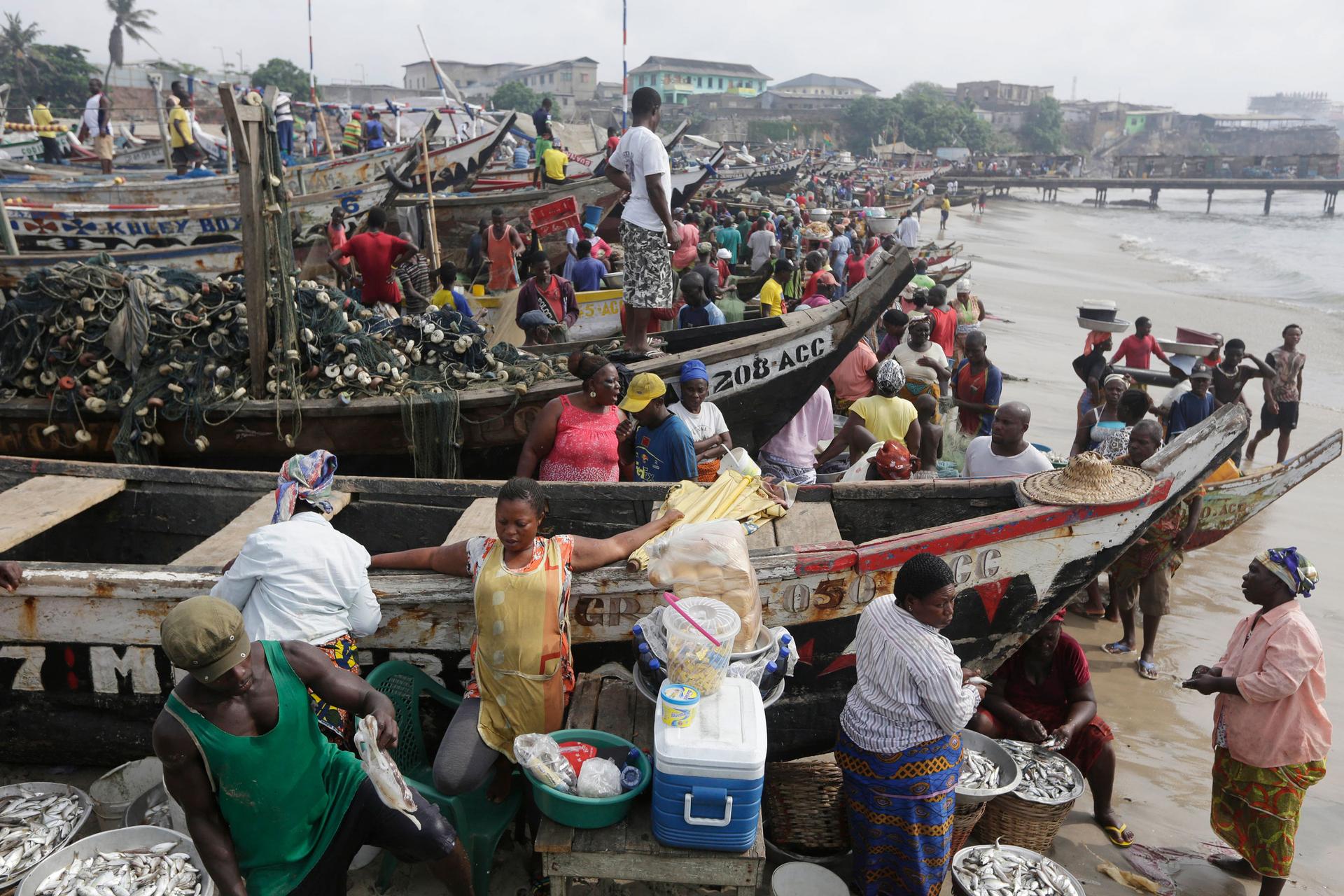
Nkum noticed that the COVID-19 pandemic has worsened an already bleak situation, with “all the disposable masks and gloves people are throwing around,” adding to the piles of litter.
“If things continue like this, I don’t know what we are going to do,” he said.
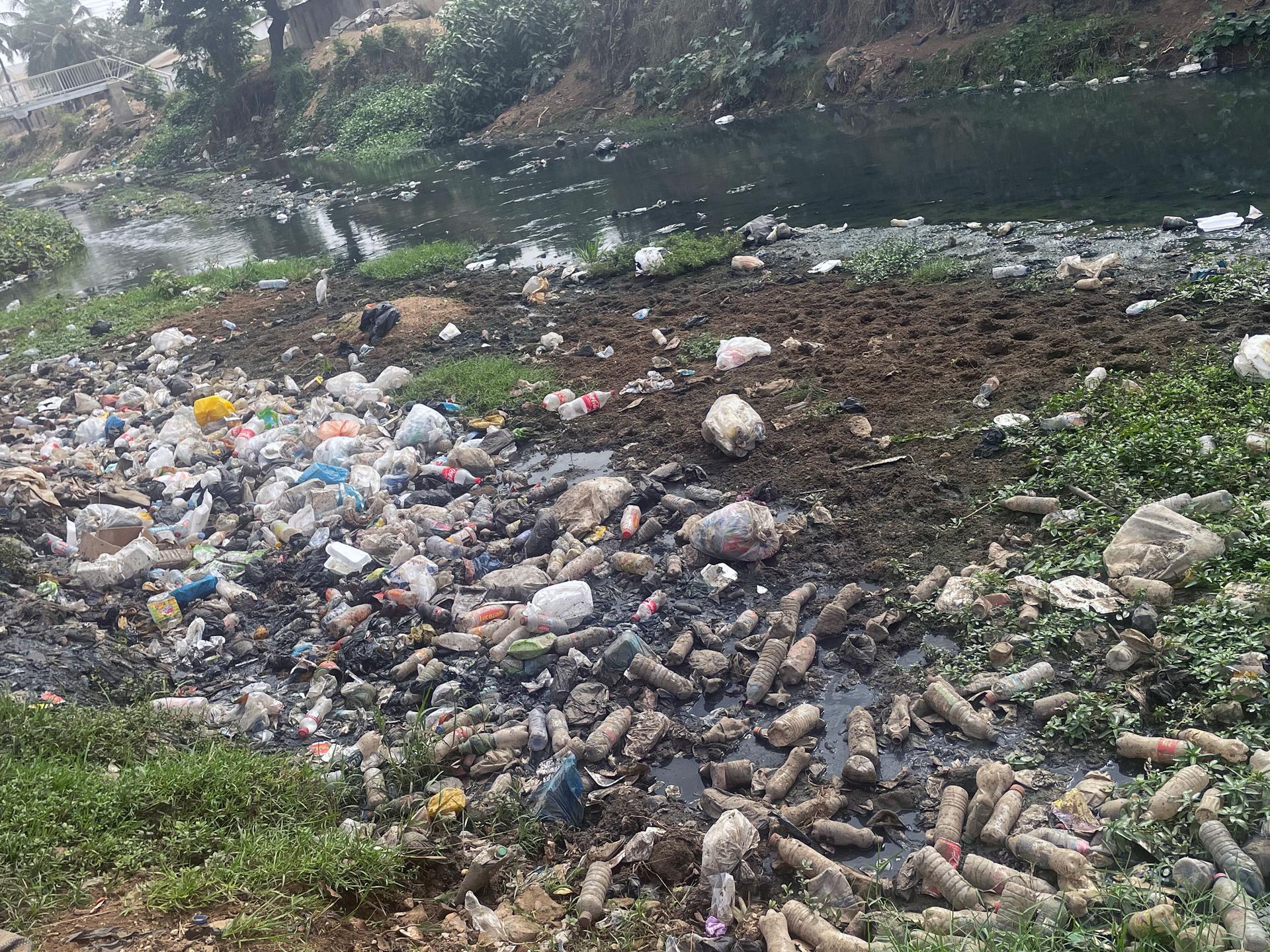
In Ghana, the fishing industry employs nearly 3 million people and generates over $1 billion in revenue each year. According to the United Nations Development Program, of the 1.7 million tons of plastic waste generated every year in the country, only 2% gets recycled.
Currently, more than 11 million metric tons of plastic are flowing into the ocean annually. By 2050, there could even be more plastic in the sea by weight than fish. Ocean plastic pollution harms marine life in two ways: through ingestion and entanglement.
To try to get a handle on the problem, the country launched the Ghana National Plastic Action Partnership in 2019.
It’s one of a handful of plans around the world, backed by the United Nations Development Program and the World Economic Forum, to fund and facilitate initiatives to accelerate viable solutions to plastic waste and pollution.
The plan also encourages businesses to make products out of recycled plastic. Nelplast Ghana Limited is answering that call.
At a factory in Ashaiman-Atadeka, a suburb of the capital Accra, uniformed workers transform shredded, recycled plastic into blocks used to build houses or walkways. The blocks, made from 80% broken plastic products and 20% sand, have a life span of 500 years.
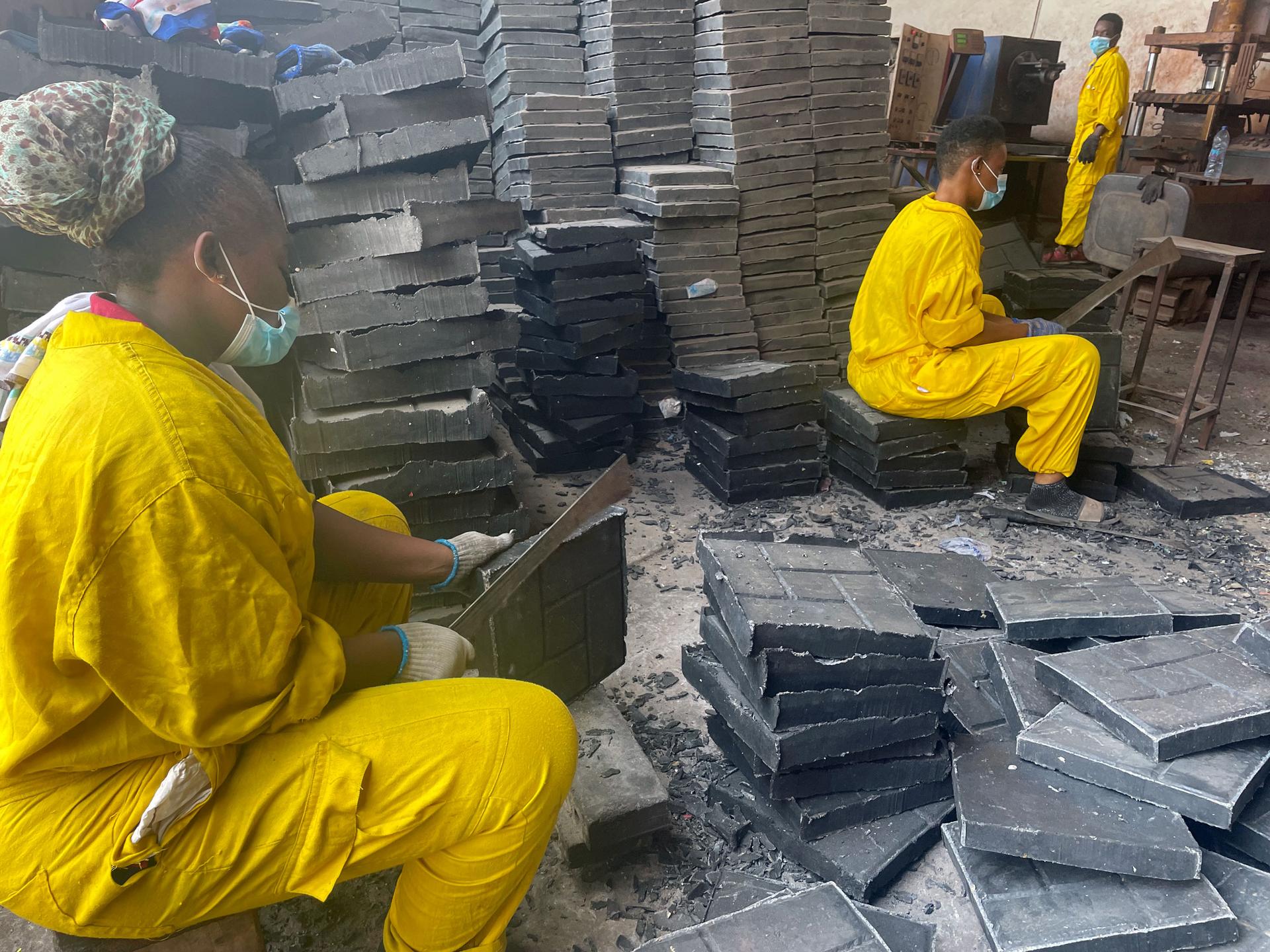
Nelson Boateng began his business, Nelplast, in 2013, with a focus on manufacturing plastic bags.
But about eight years ago, when a deadly flood and fire was caused partially by plastics blocking major open drains, Boateng began to rethink his business.
“At that point, I felt very bad about the tragedy and realized that I contributed to what happened. So, we sat down with the management to think of a product that doesn’t go out to pollute, but rather saves the environment.”
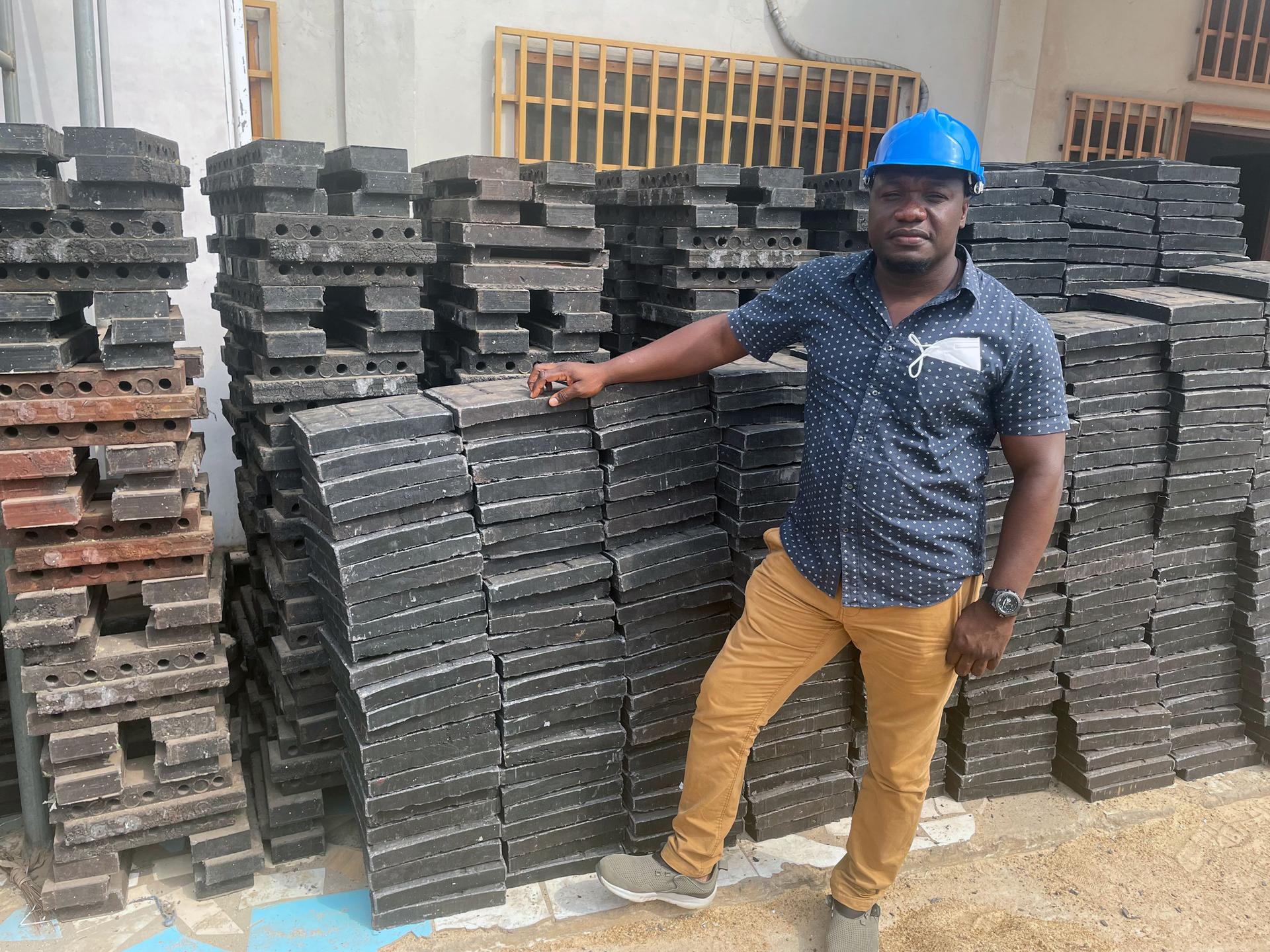
“At that point, I felt very bad about the tragedy and realized that I contributed to what happened. So, we sat down with the management to think of a product that doesn’t go out to pollute, but rather saves the environment.”
In 2019, Boateng got a $40,000 grant from the United Nations Development Program to buy more machines to mix and melt down recovered plastics. He said the support more than doubled his production capacity.
“At first, we were doing 200 bricks,” he said. “Now, with their support, we moved from 200 to 1,000 bricks per day. And that has [had] a great impact on our business.”
Nelplast Ghana has employed more than 300 people.
Augustina Yeboah is among Boateng’s more than 60 factory workers who mix, melt and mold the bricks.
“The job is very good. It enables me to provide [for] the basic needs of my family. But more fulfilling for me is that I get to contribute my quota to the sustainability of the environment.”
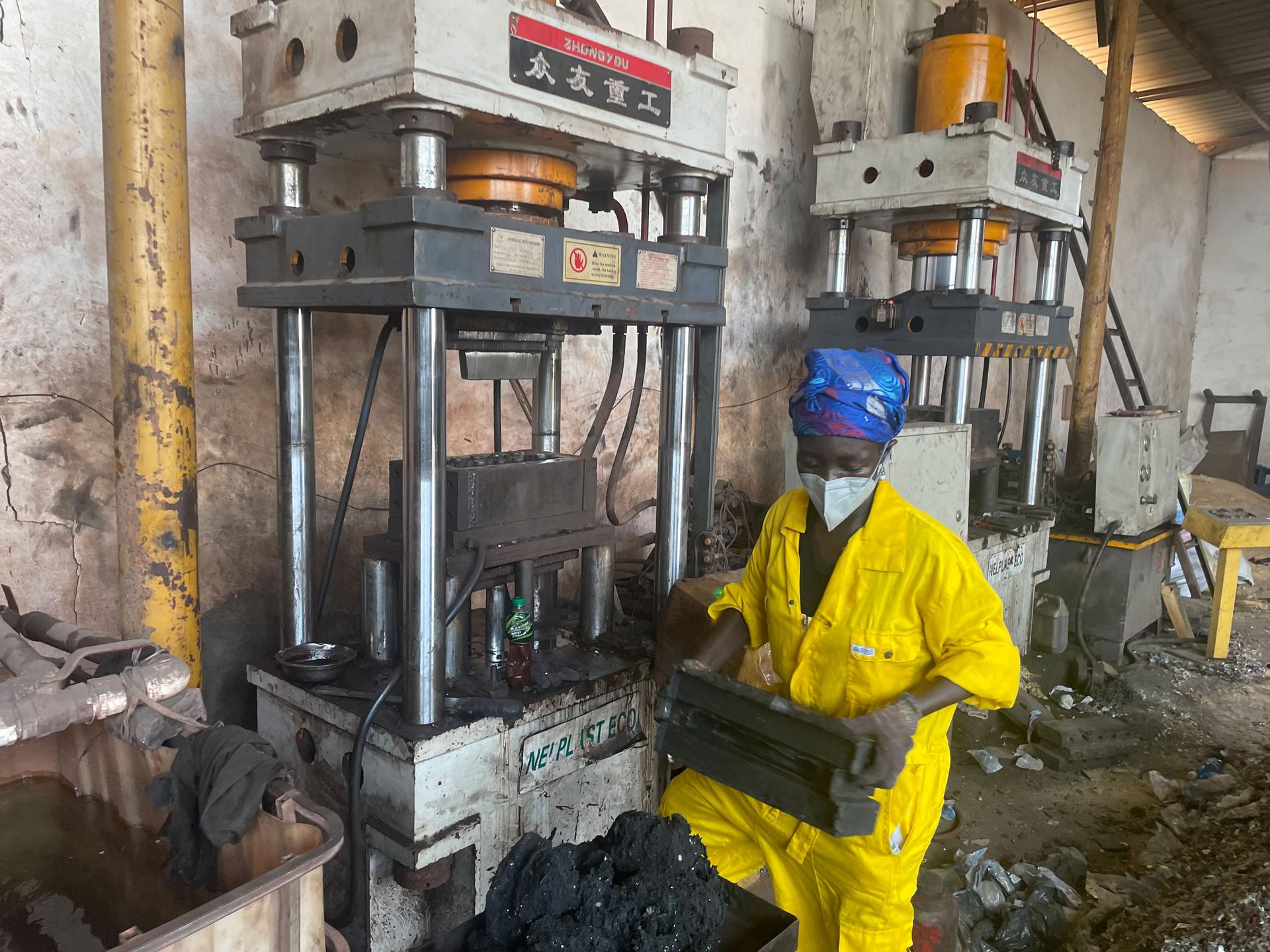
“The job is very good. It enables me to provide [for] the basic needs of my family. But more fulfilling for me is that I get to contribute my quota to the sustainability of the environment,” she said.
It’s challenging, however, to keep up with the sheer amount of waste.
Waste-pickers can bring Boateng about 20,000 tons of plastic a day, but they’re only able to recycle about 3,000 tons per day.
“So now, our main issue is how to increase the capacity. I need more investment — like $2 million — to be able to recycle and get more plastics off the streets,” he said.
Related: How the West’s obsession with fast fashion compounds an environmental nightmare in Ghana
Nine other businesses have gotten similar support from the United Nations Development Program.
But that’s only part of the solution.
UNDP project coordinator Kingsley Bekoe said he’d like to see plastics companies take more responsibility for what happens to their products after customers discard them.
“How do we get [companies] to be able to pay for some of the mitigation measures that we are putting in place for the pollution that is caused by plastics?”
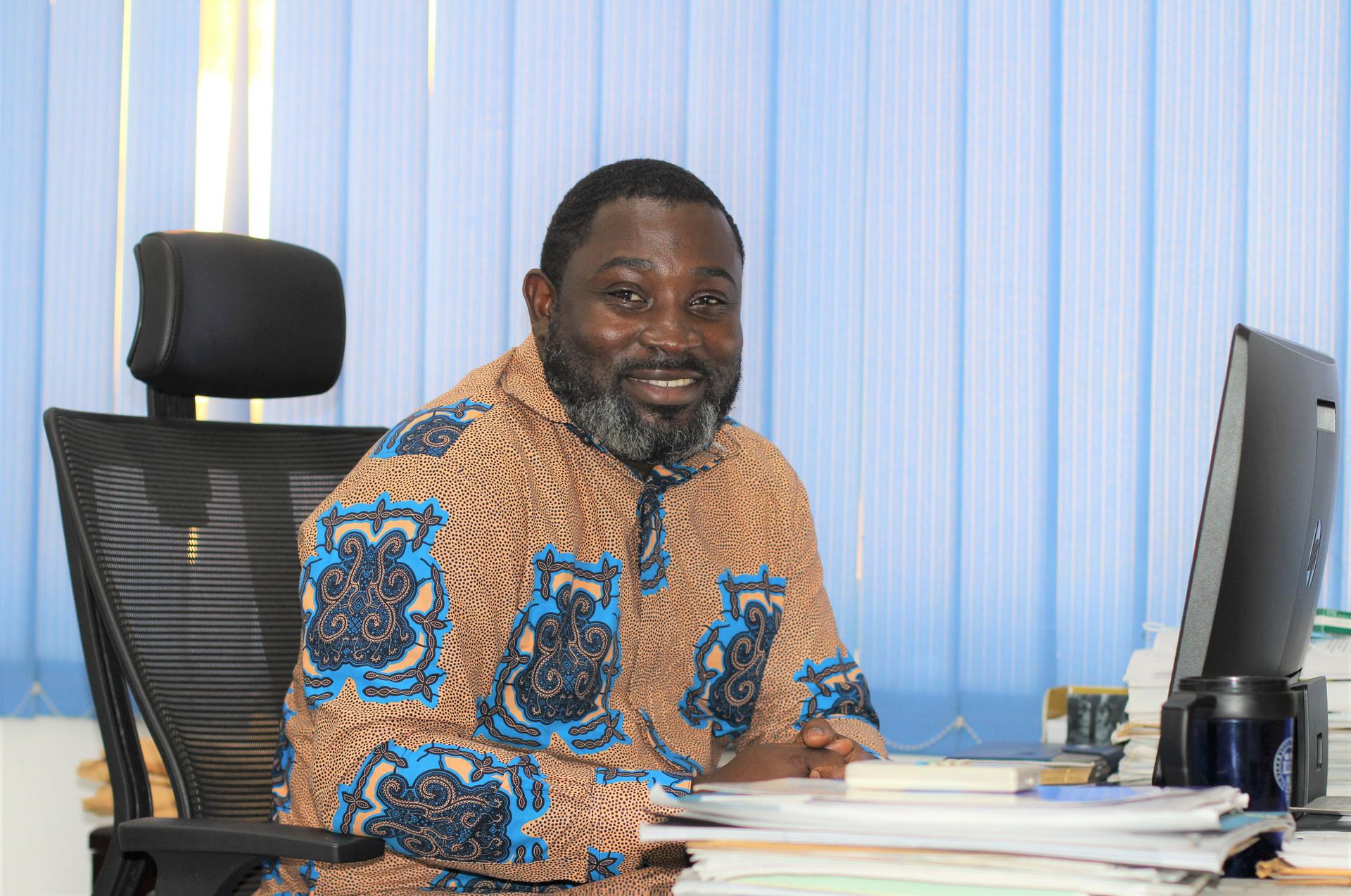
In Europe, for example, electronics companies have an obligation to finance collection, recycling and end-of-life disposal.
Oliver Boachie, a science, technology and innovation adviser to the Ministry of Environment, said the government is also set to launch a bottle deposit program this year, to incentivize people to return empty bottles.
“This is the collection infrastructure and the collection architecture that we are going to implement. Then, once that has been done, then the recyclers can have access to them,” he said.
Boachie said the Ghanaian government is also working to identify plastic manufacturers and sellers who may eventually have to pay some form of plastics tax.
The government says it’s not ready for a strict ban on plastic bags — a step that other African countries like Kenya, Tanzania and Rwanda have taken — primarily because many companies and families are still dependent on plastics. But authorities are exploring biodegradable alternatives.
“The ultimate goal should really be about reduction and eventually a complete phase-out of single-use plastics. That is the way to go.”
“To boost a more circular economy, as a continent, I think we need to become much more innovative in terms of the use of biodegradable materials,” said Charles Mwangi with the Pan African Climate Justice Alliance.
“The ultimate goal should really be about reduction and eventually a complete phase-out of single-use plastics. That is the way to go.”
Meanwhile, vulnerable communities disproportionately bear the brunt of environmental degradation caused by plastic pollution, according to a 2021 UN report.
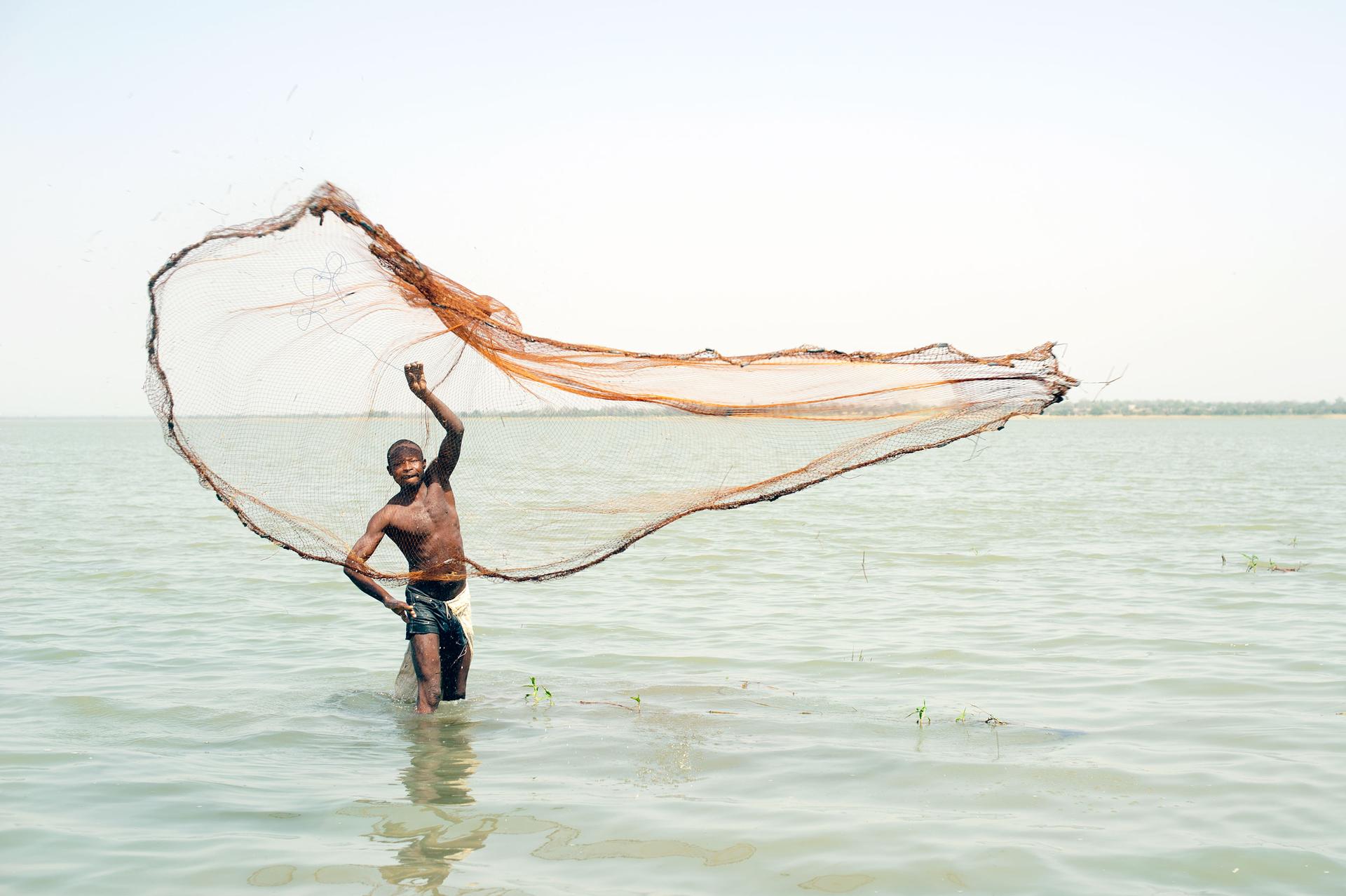
This month, leaders will meet for a UN environment summit in Nairobi, Kenya, to talk about the first-ever global agreement on plastic pollution.
Back at Winneba beach, fisherman Nkum hopes for the day when he can cast his nets and actually just catch fish again — not plastics.
“God didn’t bless us with the ocean to worry about where the next fish is going to come from,” he said. “This must not continue. We all need to do our part in ending the littering.”
